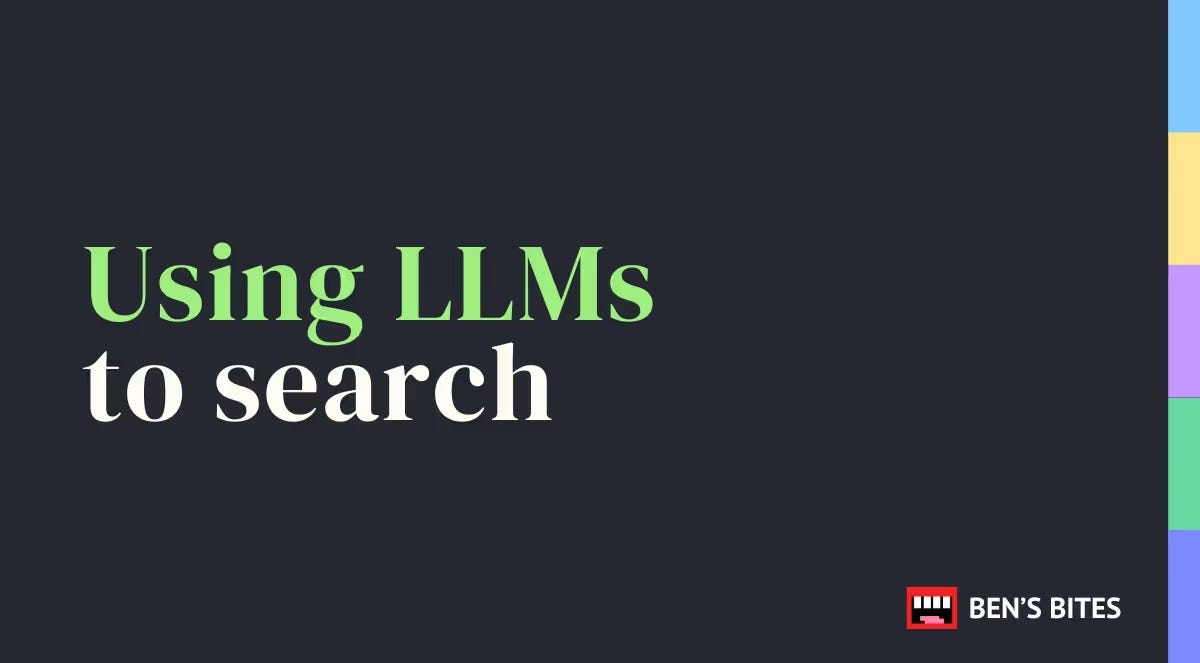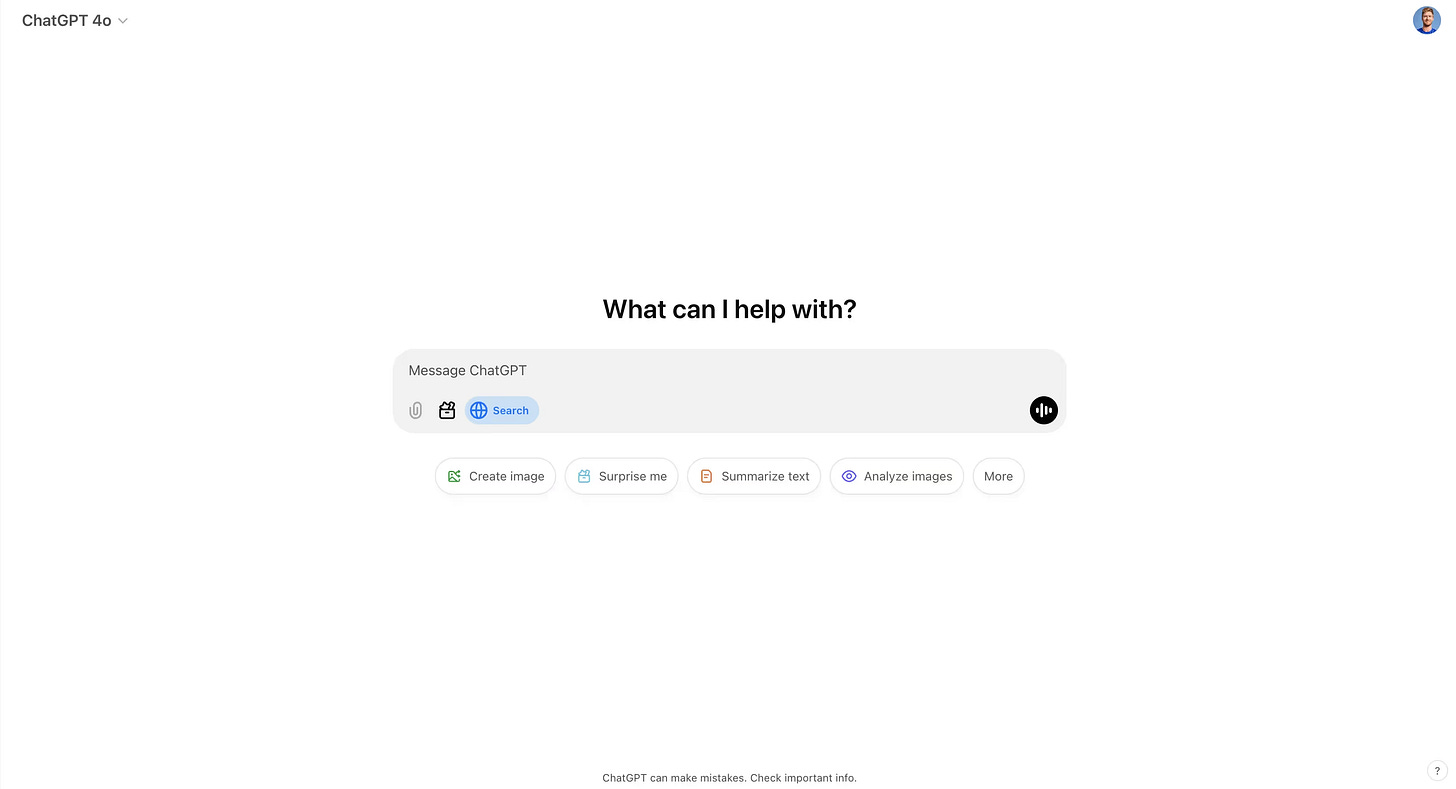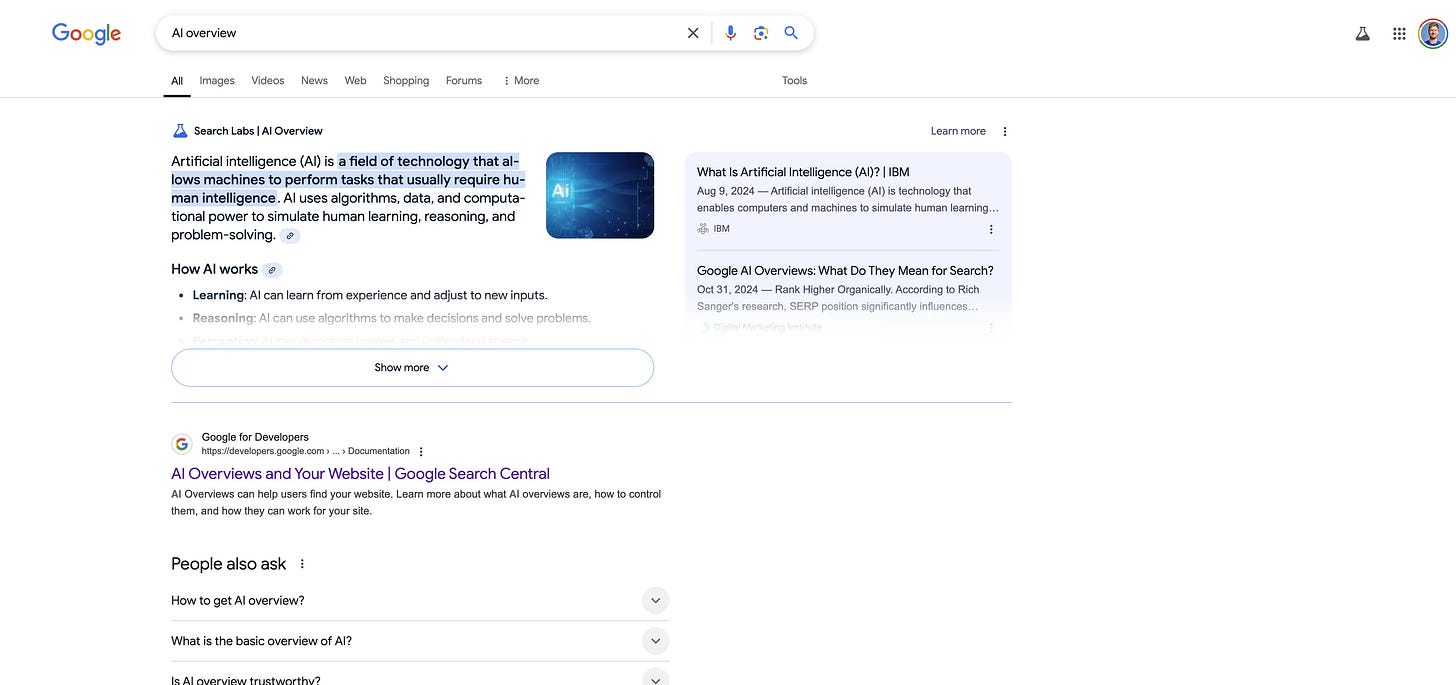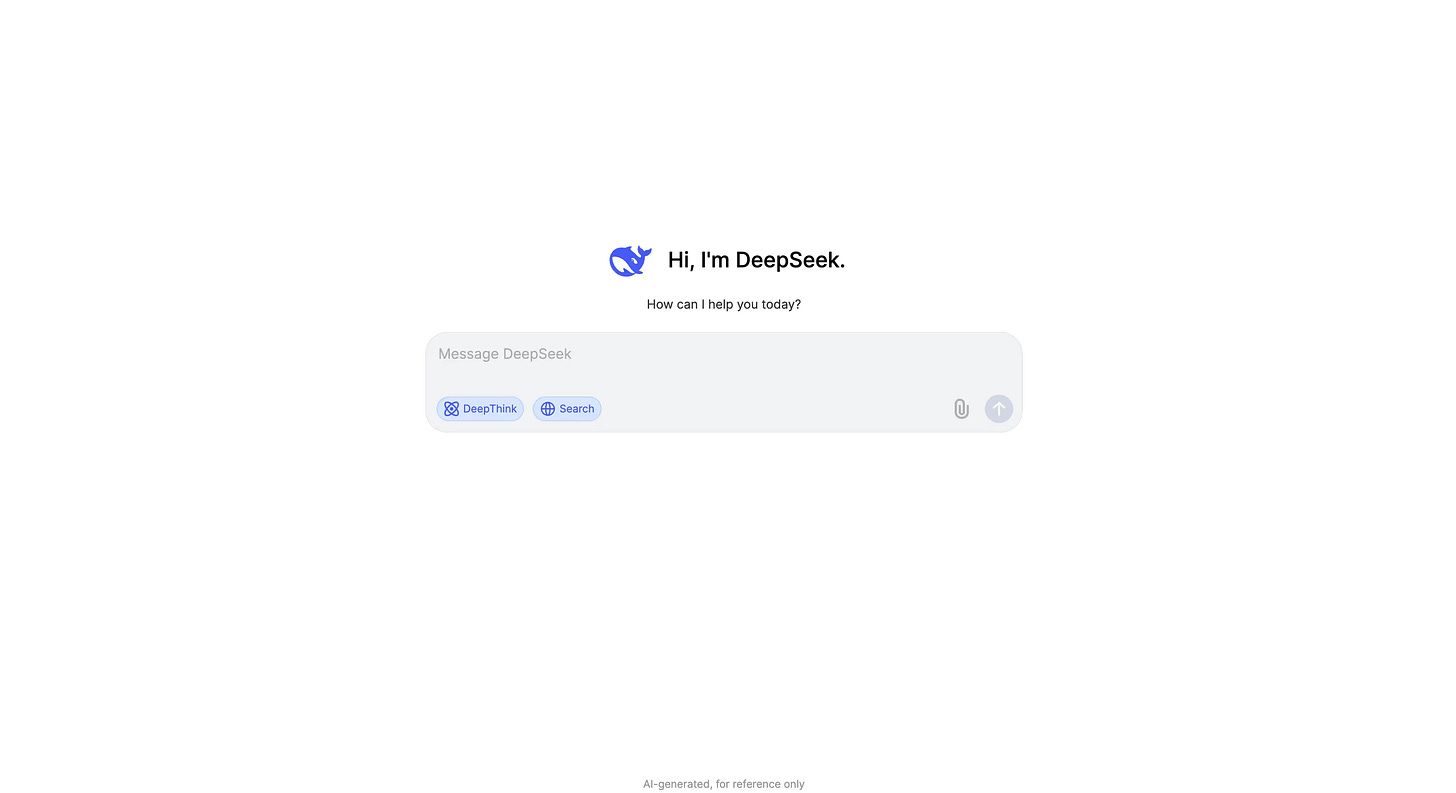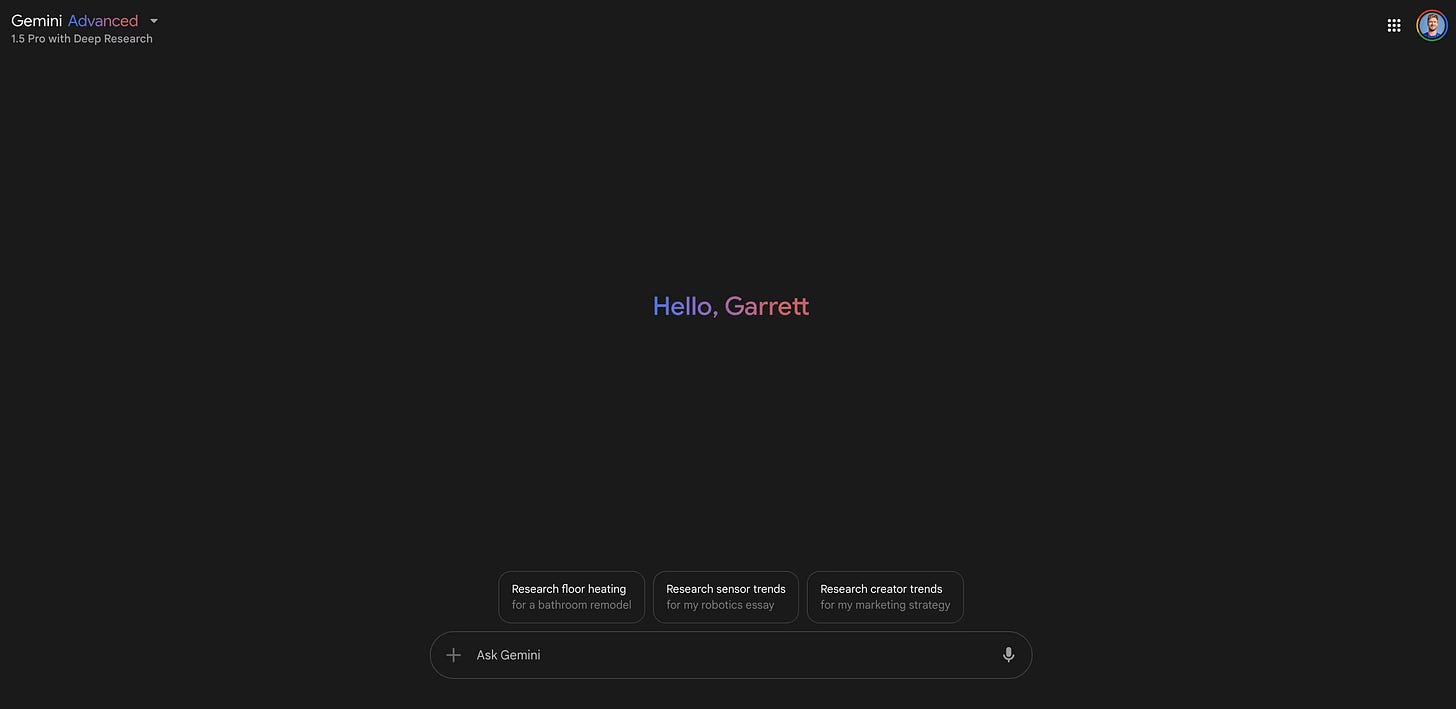Using LLMs to search
Your guide to cutting through the noise in the new AI-powered search paradigm.
The search game is evolving fast. Traditional keyword-stuffed SERPs are giving way to conversational, context-aware answers from AI tools. But with options like ChatGPT, Perplexity, Google AI Overviews, DeepSeek, and Gemini Deep Research vying for dominance, how do you pick the right tool? Let’s break it down.
1. ChatGPT: conversational search
ChatGPT has dominated the LLM chat arena for years. But for much of that short history, it did not have access to the real-time Internet. This made its responses to time-sensitive queries questionable and allowed competitors like Perplexity to swoop in and compete. But now, GPT-4o can perform web research in ChatGPT, making it a serious tool in your online search game.
Pros:
Follow-up: Ask for endless refinements (e.g., “Explain that simpler” or “Add examples”).
Multimodal: Integrates text, code, scheduled tasks, and embeddable widgets (weather, sports scores, maps, etc.) in responses.
Personalization: Generates tailored results based on memory (e.g., “Plan a tailored for me to Tokyo”).
Comprehensive: Outputs detailed, rich responses to simple queries.
Cons:
Overly verbose: Answers can feel like a blog post when you just want bullet points.
Source control: No control of what sources it queries and often stumbles on finding the most relevant search results.
💡 Best for: Creative brainstorming, personalized advice, and iterative Q&A.
Sample Prompt:
How to start a podcast for beginners?
2. Perplexity: research-focused search
Perplexity emerged as the first antidote to hallucinations, enabling real-time web access and citations. Where rivals prioritized personality, Perplexity became a go-to for researchers—a no-BS tool that cites sources without you having to ask. Other LLM products have caught up, but Perplexity still shines in many areas.
Pros
Citations: Every claim links to credible sources (e.g., academic papers, news outlets).
Real-time agility: Pulls from up-to-date indexes, perfect for trending topics like “Science breakthroughs 2025”.
Focus: Enables querying over targeted sources like YouTube videos, Reddit, or academic papers.
Cons
Dry delivery: Answers lack ChatGPT’s conversational charm (think: Wikipedia vs a coffee chat).
Hallucinations: Occasionally cites outdated prices or misinterprets niche queries.
Sample Prompt:
What’s the current consensus on AI ethics in healthcare?
💡 Best for: Academic deep dives, fact-checking, and source-backed answers.
3. Google Search (with AI Overviews): an updated traditional search
The OG search engine finally joined the AI party—fashionably late, but armed with decades of SEO data.
Google AI Overviews aren’t reinventing search but they can simplify your existing Google searches with concise AI summaries on top of all the things that have made Google Search a powerhouse for so long—relevant links, deep integrations, and more.
To be clear, the things that make Google Search still great aren’t its new AI Overviews, but its existing integrations like Shopping, Maps, and YouTube.
Pros
Ecosystem integration: Seamlessly surfaces Maps, YouTube videos, and Shopping carousels (e.g., “Best noise-canceling headphones under $200”).
Speed: Blazing-fast answers for straightforward queries.
Local savvy: Dominates “near me” searches (e.g., “Vegan bakeries in Austin”) with real-time business hours and reviews.
Cons
Cluttered UI: AI Overviews compete with ads and Reddit threads, creating sensory overload.
Limited interactivity: No follow-up questions—once you get an answer, the convo’s over.
Sample Prompt:
What are Google AI Overviews good for?
💡 Best for: Local searches, product comparisons, and multimedia-rich results.
4. DeepSeek: an open-source option
This Chinese open-source challenger is making a serious effort to become a dominant LLM tool. It combines advanced reasoning capabilities via its “DeepThink” functionality with LLM-powered web search. And isn’t just competing with ChatGPT; it’s dismantling the entire “AI-as-a-service” model too with its open-source, cost-effective offering.
Pros
Open-source: Fully transparent model architecture that outperforms GPT-4o and Claude 3.5 Sonnet in math/coding benchmarks.
Cost: For developers, charges $0.14/million input tokens—14x cheaper than Gemini 1.5 Pro. And for casual users, the web app is currently free.
Reasoning: Mixes o1-style reasoning with web search, handling 128K context windows without forgetting details mid-task.
Cons
Less feature-rich: Can’t process images/audio despite UI upload options.
Sample Prompt:
Write Python code to scrape real-time stock prices and visualize trends in Matplotlib.
💡 Best for: Technical, in-depth research queries for budget-conscious power users.
5. Gemini Deep Research: an agentic analyst
Google’s answer to ‘I need 10 tabs open for this’ is a swarm of AI agents that turn research into a collaborative sport. This product feels like a much better AI search product than their AI Overviews. Gemini Deep Research doesn’t just fetch answers—it deploys an army of mini-Geminis to dissect papers, debates, and earnings calls, then stitches their findings into thesis-ready reports.
Pros
AI agents: Deploys “mini Gemini clones” to crawl 73+ websites in 4 minutes, stitching insights into coherent reports.
Citations: Auto-cites references (e.g., WHO guidelines, peer-reviewed papers) with export-to-docs functionality.
1M token context: Devours novel-length inputs for PhD-level research depth.
Cons
Speed vs accuracy tradeoff: Takes 5-10 minutes per report—great for essays, risky for time-sensitive stock trades.
Sample Prompt:
Compare CRISPR therapies for sickle cell anemia, including 2024 clinical trial outcomes and ethical debates.
💡 Best for: Academic papers, market analysis, and multi-source synthesis.
Tool comparison cheat sheet
🎓 For academic research: Go with Perplexity, Gemini Deep Research, or DeepSeek. Perplexity for speed; Gemini Deep Research or DeepSeek for depth.
✍️ For creative projects: Go with ChatGPT for its adaptive nature and conversational brainstorming.
🧑💻 For coding/math challenges: Go with DeepSeek for its open-source precision at startup-friendly pricing.
🔍 For multi-agent research: Go with Gemini Deep Research to swarm intelligence on thorny topics.
🛒 For local/product search: Go with Google Search for its ecosystem depth and visual results.
Our final take
ChatGPT is your go-to for iterative tasks (think: trip planning), Perplexity shines for precision (research, news, fact-checking), and Google Search remains unbeatable for actionable searches (shopping, local).
For the newer entrants, Gemini Deep Research redefines “Google it” by turning search into a collaborative process—like having a team of researchers at your disposal. DeepSeek is a dark horse for developers—combining powerful search, reasoning, and agentic analysis, minus the subscription fees.
Keep all of these in your toolkit for now—AI search is currently a buffet, not a winner-takes-all ecosystem like Google Search over the past ten years.
This post was written by Garrett.


